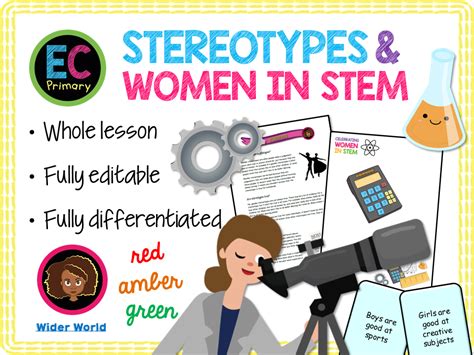Breaking News


Popular News


Explore the remarkable contributions of pioneering female scientists, the challenges they have overcome, and their inspiring impact on the next generation in STEM fields.Women have played integral roles in the fields of science, technology, engineering, and mathematics (STEM) for centuries, yet their contributions have often been overlooked or undervalued. In this blog post, we will celebrate the achievements of pioneering women in STEM, shed light on the challenges faced by female scientists, highlight the invaluable contributions of female innovators, explore the importance of breaking gender stereotypes in STEM, and discuss the ways in which we can inspire the next generation of women to pursue careers in these male-dominated fields. By acknowledging and honoring the accomplishments of women in STEM, we can work towards creating a more inclusive and diverse environment that fosters innovation and progress. Join us as we delve into the incredible impact that women have had in the world of science and discover the trailblazing individuals who have paved the way for future generations of female scientists.
Contents

Women have played a crucial role in the development of STEM fields throughout history. Despite facing numerous challenges and barriers, female scientists have made significant contributions to science, technology, engineering, and mathematics. Their groundbreaking work has paved the way for future generations of women to pursue careers in STEM.
From Marie Curie, the first woman to win a Nobel Prize, to Rosalind Franklin, whose work was instrumental in the discovery of the structure of DNA, pioneering women in STEM have defied gender norms and made invaluable discoveries. Their achievements have challenged the traditional narrative of male dominance in scientific fields, inspiring countless women to pursue careers in STEM.
Additionally, the contributions of women in STEM have had a profound impact on society as a whole. From advancements in healthcare and technology to groundbreaking research in environmental science, female scientists have made significant contributions to improving the world we live in. Their innovative thinking and determination have led to important discoveries and advancements that benefit us all.
| Notable Pioneering Women in STEM |
|---|
| Marie Curie |
| Rosalind Franklin |
| Ada Lovelace |
| Grace Hopper |

Despite the progress made in recent years, female scientists still face a myriad of challenges in the STEM fields. One of the most pervasive issues is the lack of representation and recognition. Women in STEM are often overlooked for leadership positions and awards, leading to a lack of visibility and influence in their respective fields. This can be demoralizing and discouraging, making it difficult for female scientists to advance in their careers.
Another major obstacle for female scientists is the pervasive gender bias that persists in the industry. Studies have shown that both men and women tend to evaluate the work of female scientists less favorably than their male counterparts, regardless of the quality of the research. This can lead to missed opportunities for funding, publishing, and career advancement, creating an uphill battle for women in STEM.
In addition to these institutional challenges, female scientists also face work-life balance issues that are unique to their gender. The demands of a career in STEM, with long hours and intense pressure, can be especially taxing for women who also bear the primary responsibility for family and household duties. This can make it difficult for female scientists to prioritize their own professional development and advancement.
Despite these obstacles, many female scientists are paving the way for future generations by pushing back against these challenges and creating a more inclusive and equitable environment in STEM. By highlighting the contributions of female scientists and addressing the challenges they face, we can work towards a more diverse and thriving scientific community.

Throughout history, women have made significant contributions to the fields of science, technology, engineering, and mathematics (STEM). Despite facing numerous challenges and obstacles, female innovators have played a crucial role in shaping the world we live in today. From groundbreaking discoveries to revolutionary inventions, women have left an indelible mark on the STEM industry, paving the way for future generations of female scientists and engineers.
One of the most notable female innovators in STEM is Marie Curie, a pioneering physicist and chemist who conducted groundbreaking research on radioactivity. Her work not only earned her two Nobel Prizes, but also laid the foundation for modern advancements in nuclear physics and medicine. Curie’s contributions to the field of STEM have had a lasting impact, inspiring countless women to pursue careers in science and engineering.
Other female innovators, such as Ada Lovelace, Grace Hopper, and Rosalind Franklin, have also made significant contributions to the world of STEM. Lovelace, often referred to as the first computer programmer, was a visionary mathematician who laid the groundwork for modern computing. Hopper, a trailblazing computer scientist, was instrumental in the development of programming languages and computer technology. Franklin, a pioneering chemist and X-ray crystallographer, made critical contributions to the understanding of DNA structure, despite facing gender-related obstacles in her field.
From the earliest days of scientific exploration to the present, female innovators have played a crucial role in advancing the frontiers of knowledge and driving progress in STEM. As we celebrate the contributions of these trailblazing women, it is essential to recognize their invaluable impact on the scientific community and society as a whole.

The Role of Women in STEM: Celebrating Female Scientists
In today’s world, the fields of Science, Technology, Engineering, and Mathematics (STEM) have traditionally been dominated by men. However, there is a growing movement to break gender stereotypes in STEM and encourage more women to pursue careers in these areas.
One of the biggest challenges faced by women in STEM is the pervasive gender stereotypes that suggest that women are not as capable as men in these fields. This stereotype creates a hostile work environment for women in STEM and can lead to feelings of isolation and imposter syndrome.
Despite these challenges, there are countless inspiring stories of women who have shattered gender stereotypes in STEM and made significant contributions to the field. From Ada Lovelace, the world’s first computer programmer, to Rosalind Franklin, whose work was crucial in the discovery of the structure of DNA, these pioneering women have paved the way for future generations of female scientists.
| Challenges | Solutions |
|---|---|
| Lack of representation | Creating mentorship programs and support networks for women in STEM |
| Unconscious bias | Implementing diversity and inclusion training in STEM workplaces |
| Lack of resources | Advocating for increased funding and support for women in STEM research |
By celebrating the achievements of female scientists and highlighting the barriers they have overcome, we can inspire the next generation of women to pursue careers in STEM and continue breaking gender stereotypes in the field.

As we look towards the future of science, technology, engineering, and mathematics (STEM), it is crucial to inspire the next generation of women to pursue careers in these fields. With the rapid advancement of technology and the increasing demand for diverse perspectives, it is more important than ever to encourage and support young women in pursuing STEM education and careers.
One of the key ways to inspire the next generation of women in STEM is through the celebration and recognition of female role models and innovators. By highlighting the incredible achievements and contributions of women in STEM, young girls can see the numerous opportunities available to them and feel empowered to pursue their passions in these fields.
Additionally, it is essential to provide opportunities for mentorship and hands-on experience to women interested in STEM. By connecting young women with successful female scientists, engineers, and mathematicians, they can gain valuable insights and guidance, as well as cultivate a strong support network.
In conclusion, inspiring the next generation of women in STEM is critical for the advancement of these fields and for fostering a more diverse and inclusive scientific community. By celebrating female scientists and providing mentorship and support, we can empower young women to pursue their passions in STEM and contribute to meaningful advancements in science and technology.

What is the significance of celebrating female scientists in STEM?
Celebrating female scientists in STEM is important to highlight the contributions and achievements of women in male-dominated fields, inspire future generations of girls to pursue careers in STEM, and to break gender stereotypes.
Can you provide examples of pioneering female scientists in history?
Yes, some pioneering female scientists in history include Marie Curie, Rosalind Franklin, and Ada Lovelace, who made significant contributions to the fields of physics, chemistry, and computer science.
What are some of the challenges women face in STEM fields?
Some challenges women face in STEM fields include gender discrimination, lack of support and mentorship, and the struggle to balance career and family responsibilities.
How can we encourage more women to pursue careers in STEM?
We can encourage more women to pursue careers in STEM by providing equal opportunities for education and employment, promoting positive female role models in STEM, and creating supportive and inclusive work environments.
What are the benefits of having more women in STEM fields?
Having more women in STEM fields can lead to diverse perspectives, innovative solutions, and a more balanced and equitable workforce, ultimately benefiting the advancement of science and technology.
What initiatives are in place to support and empower women in STEM?
There are various initiatives in place to support and empower women in STEM, such as mentorship programs, scholarships, networking events, and advocacy for equal representation and recognition.
How can we celebrate and recognize the achievements of female scientists in STEM?
We can celebrate and recognize the achievements of female scientists in STEM by showcasing their work, sharing their stories, and promoting gender equality in the representation of scientists in media and academia.